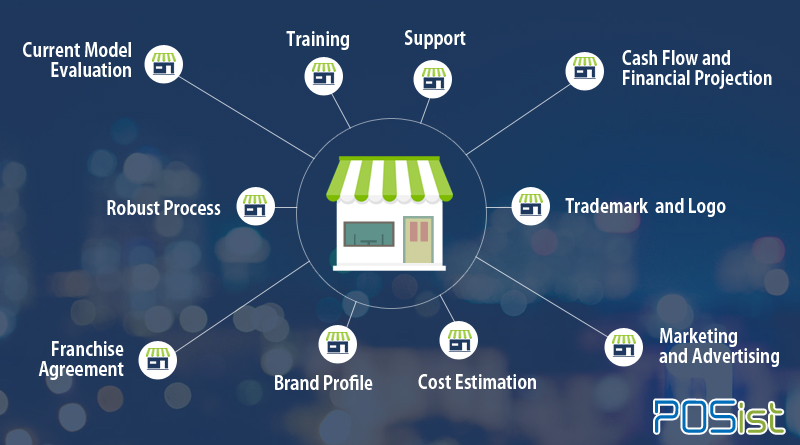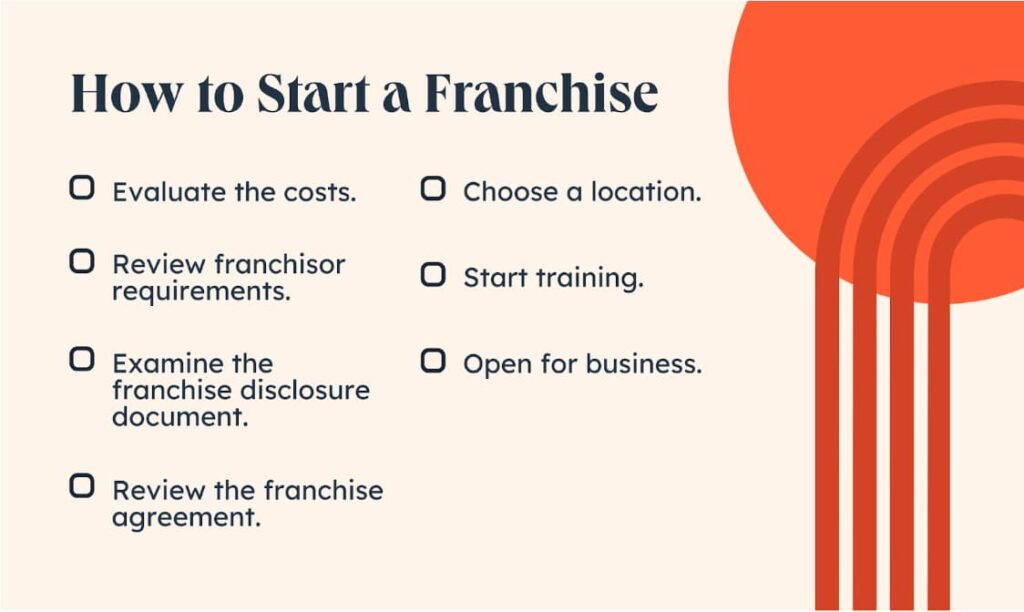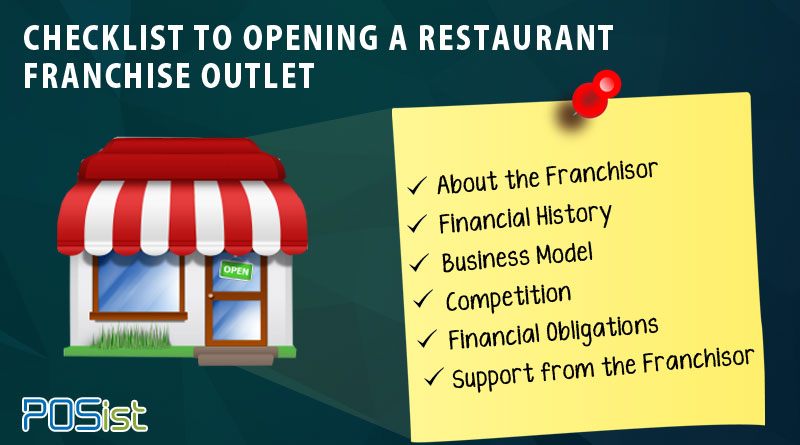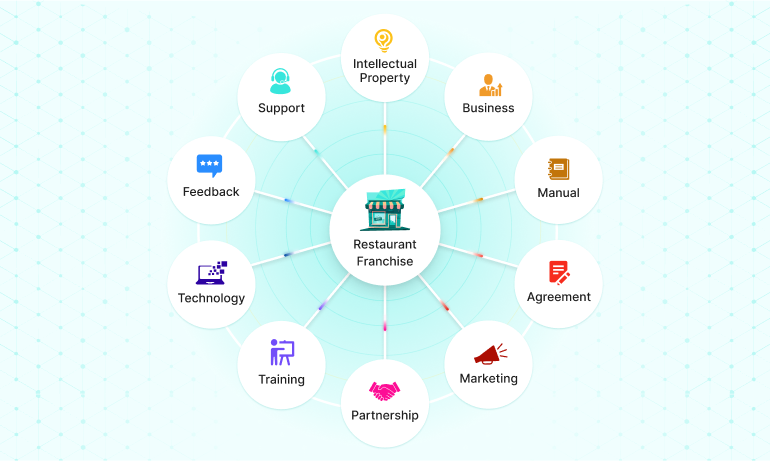If you’re a restaurant owner with dreams of expanding your business and becoming a franchisor, then this article is for you! Starting a franchise restaurant can be an exciting and profitable venture, but it also requires careful planning and execution. In this post, we will provide you with valuable tips and insights on how to successfully navigate the world of franchising. From choosing the right franchise model to establishing a solid support system, we’ve got you covered. So, let’s get started on your journey to becoming a successful franchisor!

This image is property of www.posist.com.
Choosing the Right Franchise
Starting a franchise restaurant can be an exciting and rewarding venture. However, it is crucial to choose the right franchise that aligns with your goals, values, and market potential. Researching franchise opportunities is the first step in finding the perfect fit for you.
Researching Franchise Opportunities
When researching franchise opportunities, it’s essential to consider various factors. Look for franchises that have a proven track record of success and a strong brand presence. Consider the industry trends and growth potential to ensure the longevity and profitability of the franchise. It’s also crucial to evaluate the franchisor’s support and training programs to set yourself up for success.
Evaluating Franchise Requirements
Each franchise has specific requirements that potential franchisees must meet. These requirements may include financial qualifications, experience in the industry, or even a specific location. Evaluate these requirements to ensure that you are eligible to become a franchisee and can meet the expectations set by the franchisor.
Assessing Market Potential
Before committing to a franchise, it’s essential to assess the market potential in your desired location. Look for areas with a high demand for the type of restaurant you plan to open. Consider factors such as population density, demographics, economic indicators, and competition. Understanding the market potential will help you make an informed decision and increase your chances of success.
Reviewing Franchise Agreements
Franchise agreements outline the terms and conditions between the franchisor and the franchisee. Carefully review these agreements and seek legal advice if necessary. Pay attention to fees, royalties, territorial restrictions, and any other obligations. Understanding and agreeing to these terms will help you avoid any surprises and ensure a healthy and transparent relationship with the franchisor.
Conducting Market Research
Successful franchise restaurants rely on thorough market research to identify their target market and understand their competition.
Identifying Target Market
Knowing your target market is crucial for the success of your franchise restaurant. Conduct market research to understand who your ideal customers are, their preferences, and their spending habits. This information will guide your marketing efforts, menu development, and overall business strategy.
Analyzing Competition
Competitor analysis allows you to gain insights into existing restaurants in your area. Study their menu offerings, pricing strategies, customer reviews, and marketing tactics. This analysis will help you identify gaps in the market and differentiate your franchise restaurant to attract customers.
Assessing Market Demand
Understanding market demand is vital to determine if there is a need or desire for your restaurant concept in your chosen location. Analyze factors such as population growth, income levels, and dining trends. This assessment will help you gauge the potential success of your franchise restaurant and make informed decisions about your business strategy.
Determining Location
The location of your franchise restaurant plays a significant role in its success. Consider factors such as visibility, accessibility, competition, and demographics when choosing a location. Conduct site visits, collect data, and analyze the potential foot traffic to ensure that your chosen location aligns with your target market and business objectives.

This image is property of www.legalzoom.com.
Preparing a Business Plan
A well-thought-out business plan is essential for starting a franchise restaurant. It serves as a roadmap and helps you outline your objectives, financial projections, marketing strategies, and operational plans.
Defining Business Objectives
Clearly define your business objectives in your franchise restaurant’s business plan. Consider both short-term and long-term goals, such as revenue targets, customer satisfaction goals, and expansion plans. Defining these objectives will help you stay focused and make strategic decisions that drive your restaurant’s success.
Performing Financial Analysis
A thorough financial analysis is crucial to determine the financial feasibility of your franchise restaurant. Create a budget, estimate costs, and forecast your revenue and expenses. This analysis will help you understand your break-even point, profitability, and potential return on investment.
Developing Marketing Strategies
Marketing strategies are essential for attracting customers and building brand awareness. Identify your target market, develop a strong brand identity, and create effective marketing campaigns that resonate with your audience. Consider a mix of traditional and digital marketing channels to reach a wider customer base.
Formulating Operational Plans
Operational plans define how your franchise restaurant will function on a day-to-day basis. Outline your menu offerings, staffing requirements, inventory management, and customer service protocols. These plans will ensure smooth operations and consistent quality for your customers.
Securing Funds and Financing
Starting a franchise restaurant requires substantial initial investment. Securing funds and financing options is crucial to turn your dream into a reality.
Estimating Startup Costs
Calculate the startup costs involved in opening your franchise restaurant. Consider expenses such as franchise fees, equipment purchases, leasehold improvements, marketing, and working capital. Ensure that you have a realistic estimate to secure the necessary funding.
Exploring Funding Options
There are several funding options available to franchisees. Consider traditional bank loans, Small Business Administration (SBA) loans, crowdfunding, or seeking investors. Research each option thoroughly, compare interest rates and terms, and choose the option that best suits your financial situation.
Preparing Financial Projections
Financial projections provide a forecast of your franchise restaurant’s future financial performance. Include projected revenue, expenses, and cash flow statements for at least the first three years. These projections will help you communicate your business’s potential to lenders or investors and make informed decisions regarding your financial strategy.
Seeking Investors or Lenders
If you need additional funding for your franchise restaurant, consider seeking investors or lenders. Develop a compelling business plan and financial projections to present to potential investors or lenders. Be prepared to negotiate terms and communicate the value and potential of your franchise restaurant.

This image is property of blog.hubspot.com.
Finding the Right Location
Choosing the right location is crucial for the success of your franchise restaurant. Conduct comprehensive evaluations to ensure you select a location that aligns with your target market and business objectives.
Analyzing Demographics
Analyze the demographic data for potential locations. Consider factors such as population size, age distribution, income levels, and cultural diversity. This information will help you determine if your target market is present in the area and if they have the purchasing power to support your franchise restaurant.
Considering Foot Traffic
Foot traffic is an essential factor to consider when selecting a location for your franchise restaurant. Analyze the number of people passing by, nearby businesses, and the potential for attracting customers. Choose a location with high foot traffic to maximize your visibility and increase the chances of attracting customers.
Assessing Accessibility
Accessibility is critical for the convenience of your customers. Evaluate the availability of parking spaces, public transportation, and proximity to major roads or highways. Ensure that your franchise restaurant is easily accessible and convenient for your target market.
Negotiating Lease Terms
When choosing a location, negotiate the lease terms that best suit your business needs. Consider factors such as lease duration, rental rates, renewal options, and any additional clauses or obligations. Seek legal advice to ensure that the lease agreement protects your interests and gives you the flexibility to operate your franchise restaurant successfully.
Setting Up Franchise Operations
Once you have chosen a location, it’s time to set up the operational aspects of your franchise restaurant.
Developing Standard Operating Procedures
Developing standard operating procedures (SOPs) is crucial for maintaining consistent quality and efficient operations. Document the step-by-step processes for various tasks, including food preparation, customer service, inventory management, and employee training. SOPs provide clear guidelines for your staff and ensure that your franchise restaurant operates smoothly.
Establishing Supply Chain
Establishing a reliable supply chain is essential for the smooth operation of your franchise restaurant. Find suppliers who can consistently provide high-quality ingredients and products. Negotiate favorable pricing and delivery terms to ensure the profitability and efficiency of your franchise restaurant.
Recruiting and Training Staff
Recruit skilled and dedicated staff members who embody your brand values. Develop a comprehensive training program that covers food safety, customer service, and specific operational procedures. Invest in regular training and professional development to ensure that your staff delivers excellent service and upholds your franchise restaurant’s reputation.
Implementing Quality Control Measures
Maintaining consistent quality is vital for the success of your franchise restaurant. Implement quality control measures across all aspects of your operations, from food preparation to customer service. Regularly conduct inspections, gather customer feedback, and address any issues promptly. Consistent quality will help you build customer loyalty and attract new customers.

This image is property of www.posist.com.
Navigating Legal and Regulatory Requirements
Starting a franchise restaurant comes with legal and regulatory obligations that must be met. Ensure that you navigate these requirements to operate your franchise restaurant legally and ethically.
Obtaining Required Licenses and Permits
Research the licenses and permits necessary to operate a franchise restaurant in your chosen location. These may include business licenses, food service permits, liquor licenses (if applicable), and health department certifications. Complying with these requirements will help you avoid legal issues and ensure the safety and well-being of your customers.
Complying with Health and Safety Regulations
Health and safety regulations are essential for any restaurant. Implement proper food handling and storage procedures, adhere to cleanliness and sanitation standards, and train your staff on food safety protocols. Regularly conduct inspections and address any violations promptly to maintain a safe and healthy environment for your customers.
Ensuring Compliance with Franchise Laws
Franchise laws vary from state to state and even internationally. Familiarize yourself with these laws to ensure that you are operating within the legal framework. Understand your rights and obligations as a franchisee, as well as the responsibilities of the franchisor. Seek legal counsel to ensure that you are compliant with all applicable franchise laws.
Protecting Intellectual Property
Franchise restaurants often operate under established brand names and trademarks. It’s crucial to protect these intellectual properties to maintain the integrity and value of your franchise. Register trademarks, copyrights, and any other protectable intellectual property. Understand the rights and restrictions that come with your franchise agreement to avoid any legal issues in the future.
Creating a Strong Brand Identity
Building a strong brand identity for your franchise restaurant is crucial for long-term success. Your brand identity sets you apart from the competition and resonates with your target market.
Designing a Unique Logo and Branding
Create a unique and memorable logo and branding elements for your franchise restaurant. Consider the message you want to convey and the emotions you want to evoke. Collaborate with professional designers to develop a cohesive and visually appealing brand image that reflects your restaurant’s personality.
Developing Marketing Collateral
Marketing collateral includes printed materials such as menus, brochures, flyers, and business cards. Ensure that your marketing collateral aligns with your brand identity and effectively communicates your offerings to potential customers. High-quality materials and persuasive content will help you attract and engage your target market.
Establishing a Social Media Presence
In today’s digital age, a strong social media presence is indispensable for any business, including franchise restaurants. Create social media accounts on platforms that are popular among your target market. Share engaging content, respond to customer inquiries and reviews, and run targeted advertising campaigns. Social media provides an excellent platform for building brand loyalty and promoting your franchise restaurant.
Crafting a Brand Story
Crafting a compelling brand story helps create an emotional connection with your customers. Share the history, values, and unique aspects of your franchise restaurant. Highlight your commitment to quality, sustainability, or community involvement. A captivating brand story will resonate with your target market and distinguish your franchise restaurant in a crowded marketplace.

This image is property of www.upmenu.com.
Implementing Effective Marketing Strategies
Your franchise restaurant’s success depends on effective marketing strategies that attract customers and generate revenue.
Segmenting the Target Market
Segmenting your target market involves dividing it into distinct groups based on shared characteristics or behaviors. Identify the different customer personas within your target market and tailor your marketing efforts to each group’s needs and preferences. This targeted approach will increase the effectiveness of your marketing campaigns.
Creating Marketing Campaigns
Develop creative and compelling marketing campaigns to promote your franchise restaurant. Consider both traditional and digital marketing channels, such as print advertisements, radio spots, online ads, social media promotions, and email campaigns. Set clear goals for each campaign, track the results, and refine your strategies based on the data.
Utilizing Digital Marketing Channels
Digital marketing is a powerful tool for reaching and engaging with your target market. Optimize your website for search engines, invest in search engine marketing to drive traffic, and leverage social media platforms to connect with customers. Implement email marketing campaigns to nurture leads and maintain customer relationships. Stay updated on digital marketing trends and strategies to stay ahead of the competition.
Monitoring and Analyzing Campaign Performance
Regularly monitor and analyze the performance of your marketing campaigns. Track key metrics such as website traffic, conversion rates, customer engagement, and return on investment. Use this data to optimize your marketing strategies, identify areas of improvement, and capitalize on successful tactics. A data-driven approach will help you make informed decisions and maximize the impact of your marketing efforts.
Conclusion
Starting a franchise restaurant requires careful consideration, research, and planning. Choosing the right franchise, conducting market research, preparing a business plan, securing funding, finding the right location, setting up operations, navigating legal requirements, building a strong brand identity, and implementing effective marketing strategies are all crucial steps towards success. With dedication, hard work, and the right strategies in place, you can turn your franchise restaurant into a thriving and profitable business.
